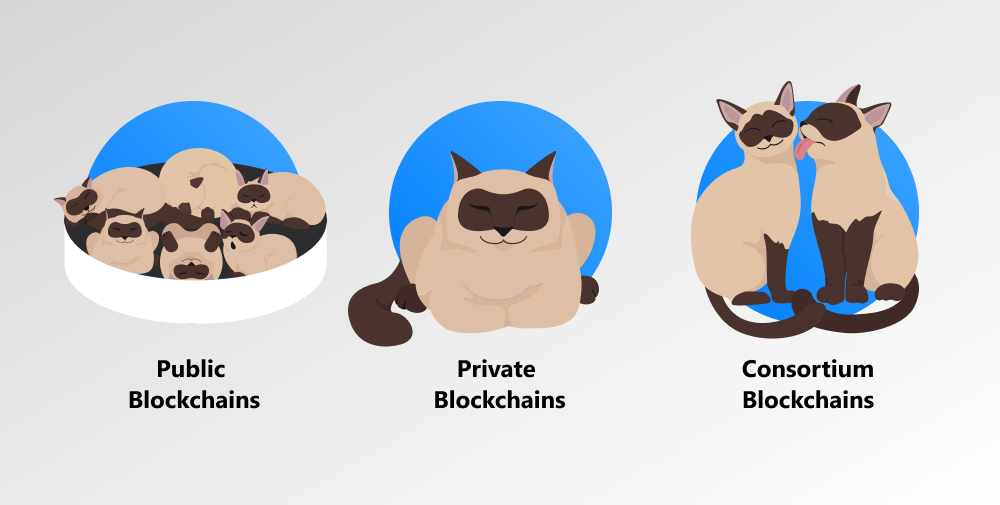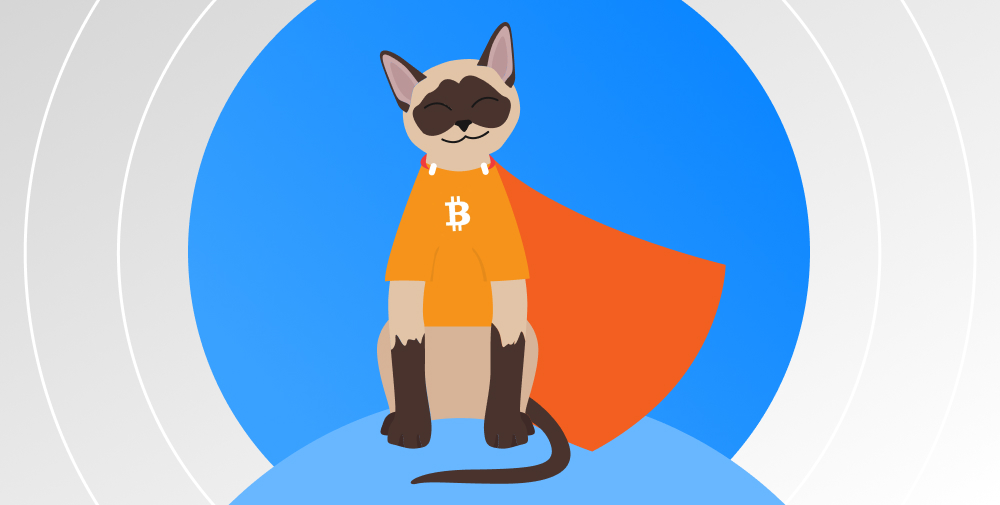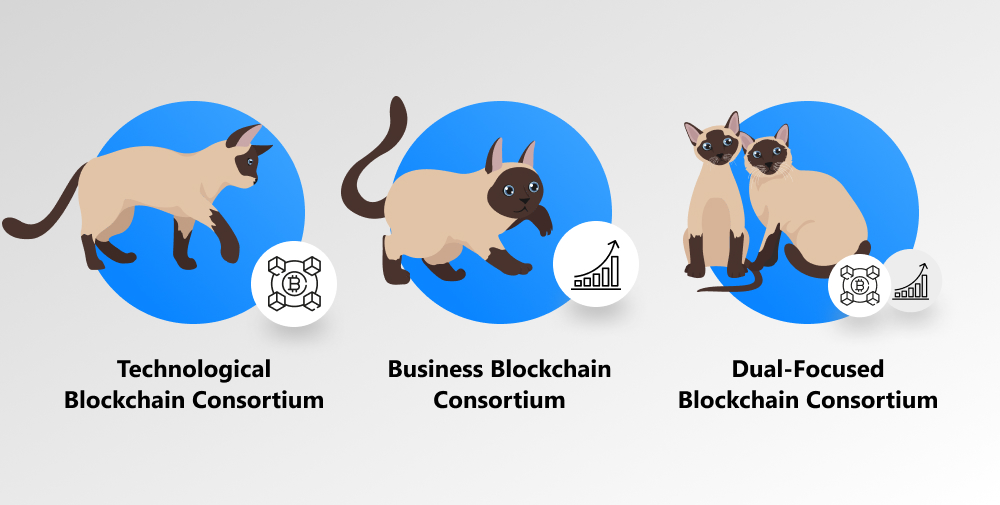On September 7 this year, El Salvador introduced the Chivo bitcoin wallet for its citizens to provide commission-free payment service for remittances. In 2020, El Salvador got about $6 billion in remittances. The money transfer commission can reach up to 33%. So, if all Salvadorians turn to Chivo, it may cost Western Union and other payment services $400 million a year.
When it comes to organizations and companies, expenses for traditional payment processing are just huge. No wonder, that modern models, like a blockchain consortium, are so attractive for business today. In our new article, we'll have a closer look at blockchain collaboration tendencies.
written by:
Andrei Kvasov
Senior Software Developer,
Qulix Systems
Contents
What Is a Blockchain Consortium?
A blockchain consortium is the cooperation of multiple organizations in the form of a decentralized blockchain network. The core idea of a consortium blockchain (or a federated blockchain) is the equal treatment of all its participants and their equal rights in decision-making.
A consortium provides a collaborative environment for its members’ mutual profit at a much more advanced level than the other types of blockchain networks. But how does it work? Let’s work up to it.
Types of Current Blockchain Networks
We started our story with the latest news from Latin America. But it is not that bright as it may seem at first sight. The recent adoption of the Bitcoin Law — the decision of the new tech-savvy president of El Salvador — caused numerous protests. People just do not trust cryptocurrency as a legal tender yet. Many of them are not well-informed about all the advantages of blockchain technology.
Meanwhile, the global crypto market is estimated at $2.17 trillion and large corporations have been using the benefits of blockchain for years already. Demands for decentralized finance, digital currencies, and tokenization became urgent today, together with the focus on data privacy and risk management. To survive and develop, businesses must go digital as fast as possible. The latest advanced opportunities of the modern market can open new horizons for companies, which are ready to innovate with the help of blockchain network solutions.
Nowadays, there are three main types of blockchain networks. We'll briefly define their most distinctive features.
Public Blockchains
A public blockchain is the genuine ‘mother technology’ — the first type of blockchain network that was suggested by Satoshi Nakamoto. It does not contain any restrictions of access. Nobody is eligible to control the ecosystem. If you have an internet connection, you can join the network to validate blocks and send transactions. The system is a completely decentralized digital public ledger. All the transactions are transparent to everyone.
However, the absence of privacy is a serious drawback to this type of blockchain network. Anyone can check the amount of cryptocurrency in the wallets of the participants of transactions. The massive character of public blockchain causes problems with scalability and slow output. And this open-source network charges the largest transaction fees among other blockchain networks.
Private Blockchains
To overcome the issue of excessive transparency, private blockchains were introduced. In these types of blockchain networks, there is always a controlling authority. This type of network is ideal in its security aspect for quite a wide range of enterprises, which implement blockchain technologies into their business processes but do not need to reveal them to the public. Moreover, a private blockchain provides a higher level of efficiency for its members due to more resources of a platform available for limited nodes. The entry into the network should be approved, the privileges of the participants are permissioned by the controlling organization. Readability features may be fully or partially restricted.
Open-source and democratic, but scalable and robust at the same time? Sounds like mission impossible? Here comes the main character of our article — a consortium blockchain.
Consortium Blockchains
A consortium blockchain took the best of both the worlds we mentioned before. The admission to the consortium should be approved. Despite its permissioned nature, which means participation in the organization with approved access to the ledger, a consortium blockchain does offer decentralization. The network has no authority — the main principle and the philosophy of consortium is democracy. Each participant has equal rights to govern the platform.
At the same time, no member of the network can secretly perform any fraud or illegal activity because all the transactions are open to other members of the consortium. Multiple organizations in the blockchain consortium should collaborate to make decisions and develop the platform.
More so, the concept of a consortium blockchain derived from the intention to provide a modern solution for effective collaboration of enterprises and to get the benefits of blockchain technology. For their part, numerous consortium blockchains contribute to the updating and development process of the technology itself.
Blockchain Consortium Super Powers
It is great to have many soulmates among your business partners. When you can easily get consensus with all the members. Why do giant companies like IBM, Cisco, or Mastercard join blockchain consortia? What benefits do they get while participating in a consortium?
Fair Regulations
Complete freedom and unlimited creative horizons are great, but when we deal with business enterprises, we need strong and reliable rules for everything. They empower a steady pace of all processes. In a consortium blockchain, all nodes must follow the standardized rules the participants developed together and agreed to accept. It delivers a unified environment for the updated efficiency that works for all the members.
Fast and Cheap Transactions
Blockchain platforms provide fast and cheap transactions — it goes without saying. When we compare with traditional banking, where the processing of a transaction can take a couple of business days, blockchain technology operates at a rocket speed and costs next to nothing. Nevertheless, that speed and price can also be different. In a public blockchain when numerous members join the platform thus increasing the number of transactions at a time, the speed of processing declines, and the transaction fee rises.
In a consortium blockchain, there is always a stable quantity of members and approximately the same amount of transactions. That is why the time and the cost of processing remain unchanged and can even improve with time if you implement innovations. Our top-class blockchain software development professional team is an expert in delivering the latest solutions in blockchain innovation.
Guarantee of Security
Is a blockchain consortium more secure than public or private ones? It is. In comparison with an open-source public blockchain, all the users of a consortium network know each other very well and there can be no strangers or intruders in it. All the users follow the same regulations and all the transactions are transparent. Contrasting to a private blockchain, a consortium is governed by all the users democratically. No authority can dictate the rules and thus control or dominate the platform, and perform insecure or fraud activity. A consortium blockchain is at the top of security proof among all the types of blockchain.
So, this blockchain solution is clear, effective, and secure. Let's see what companies have already experienced the benefits of consortium blockchain solutions.
Consortium Blockchain Examples
A federated or consortium blockchain is a very popular type of blockchain today. Enterprises of various industries connect their future with the opportunities of blockchain collaboration. Actually, there are three major types of blockchain consortia that companies from different spheres choose.
Technological Blockchain Consortium
These are standardized platforms with advanced blockchain solutions. One of the main goals of this type of blockchain industry consortium is to provide and promote a high-standard blockchain ecosystem. The leaders of technological blockchain consortia are shaping global blockchain technology today. Below are two mammoths of this type.
Hyperledger is an open-source community introduced by Linux Foundation that collaborates in order to develop the foundation for blockchain technology. The famous initial members of the consortium are Cisco, IBM, Intel, Fujitsu, SWIFT, J. P. Morgan, Sberbank, SAP. The consortium distributed ledger frameworks, tools, and libraries like Hyperledger Fabric, Caliper, and Ursa. And now it is a successful collaboration of more than 250 companies.
Enterprise Ethereum Alliance was formed to set robust standards for Enterprise Ethereum in architecture and specifications and to increase its popularity across industries. EEA's loud names are Banco Santander, CME Group, Intel, J. P. Morgan, and Microsoft. This open-source blockchain consortium now has more than 100 members that collaborate to move blockchain technology forward.
Business Blockchain Consortium
Promoting new technologies globally is a great mission of the bright future, but consortium blockchains for specific business solutions provide benefits in real-time. The consortia of this type offer blockchain solutions for particular business issues in finance and trade, healthcare and education, and many other areas. Check below the most influential names in this large group of the business blockchain consortium cluster.
Marco Polo Network is a trade finance blockchain consortium built on the Corda platform. Numerous financial institutions form this consortium — BNP Paribas, Commerzbank, Bangkok Bank, NatWest, ITFA, as well as about 20 of the largest corporations — Daimler, Mitsubishi, and Oracle. The Marco Polo platform provides distributed network of payment solutions and trade finance enabled by blockchain technology.
TradeLens is a supply chain interconnected ecosystem introduced by IBM and Maersk. It is a blockchain consortium of cargo owners and carriers, ports, terminals, customs authorities, logistic providers, and other members of world trade that efficiently build the supply ecosystem powered by the IBM Blockchain platform.
Dual-Focused Blockchain Consortium
This type of blockchain collaboration is a hybrid of the technological and business consortia. It focuses on both — blockchain technology solutions and platforms for various industries. The real dual-focused blockchain giant is R3.
R3 is a permissioned enterprise Distributed Ledger Technology production ecosystem established by a Wall Street company that is the largest in the world. More than 400 companies use their blockchain solutions on the Corda platform powered by IBM and Intel and also numerous specialized business products.
Closing Thoughts
To sum all our findings of a consortium blockchain, we can state that it performs the right balance in the use of blockchain technology. Democratic and open to new technologies, and at the same time safe, robust, and enclosed for the efficient use of resources and time. A consortium blockchain promotes further development of all the modern industries, providing a stable and reliable platform for business cooperation. It makes blockchain technology clear and popular for everyday use.
Got interested in blockchain solutions for your business? Then contact our specialists for the highest-quality expertise. And keep on checking our blog for more stunning news and reviews from the innovation world.

Contacts
Feel free to get in touch with us! Use this contact form for an ASAP response.
Call us at +44 151 528 8015
E-mail us at request@qulix.com










